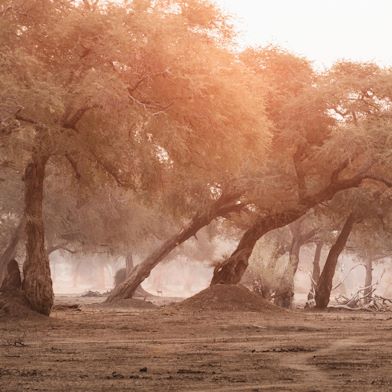Celebrated yearly on 18 March since its launch by the UN in 2018, Global Recycling Day still often slips below the radar. Yet, now more than ever, we need recycling’s impacts: reduced energy consumption; enhanced air and water quality; slowed climate change. Only in the last few decades has recycling gained traction globally; we at Wilderness have been doing it since our inception in 1983. But humanity has been recycling for centuries.
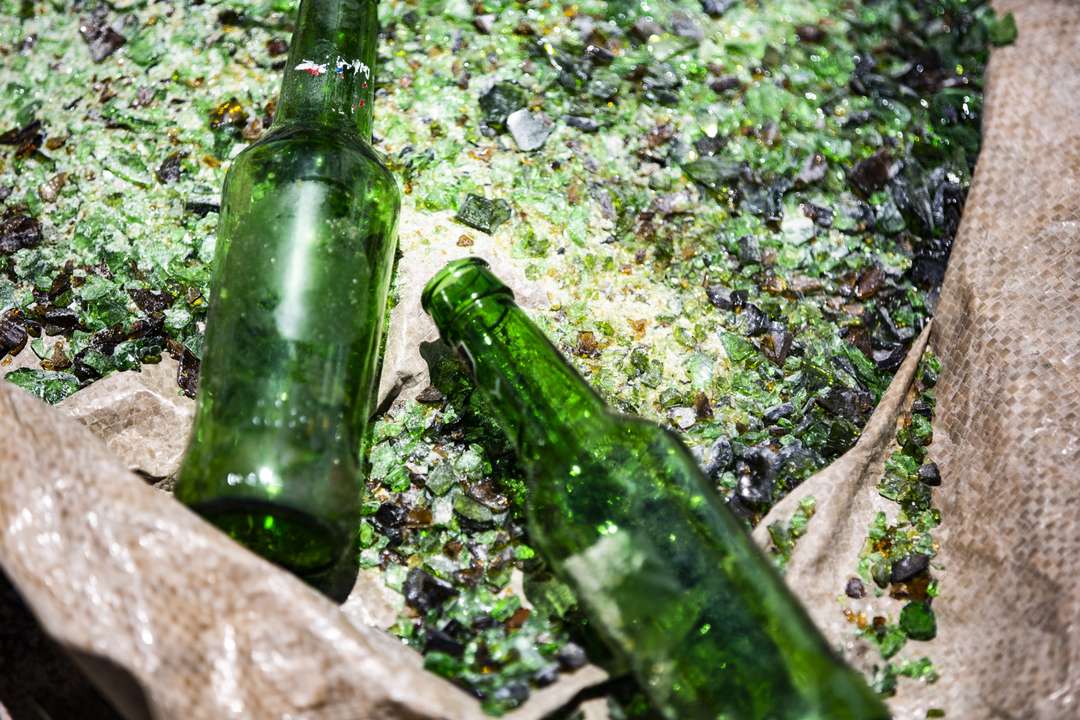
Some place recycling’s origins around 500 BC, when the first waste programme (i.e. dump) was established outside of Athens, Greece. The first recorded paper recycling was in 1031 AD Japan, as the Imperial Court declined and more commoners became paper manufacturers and dealers. Patriots in America’s War of Independence in 1776 pulled down a statue of King George III, melting it to make 42 088 bullets to fire at the British. In 1897, New York City opened its first Crude Recycling Plant, a material recovery centre housing ‘picking yards’ where scrap metal, paper, rubber, twine, and other materials were separated from trash for repurposing.
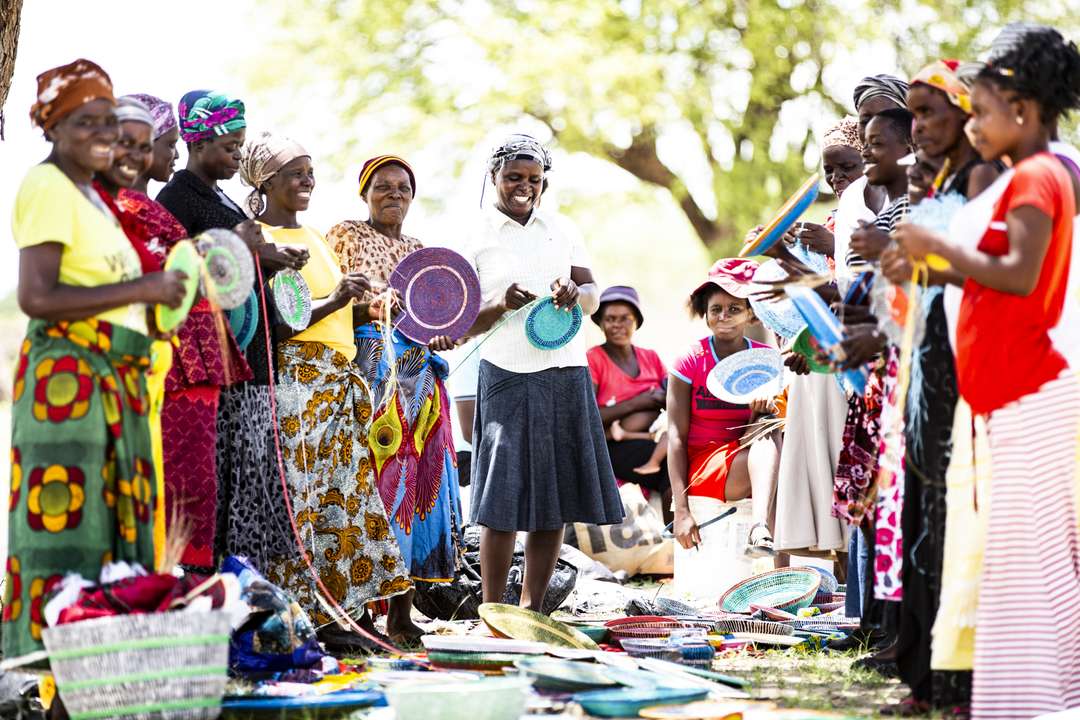
Wars and economic downturns saw recycling surges: America’s implementation of Waste Reclamation Services, along with the slogan ‘Don’t Waste It, Save It’, during WW I; recycling and reusing scrap metal, cloth, paper, sacks, and other materials during the States’ Great Depression in the thirties; and further mass recycling during WW II.
In 1970, a 23 year-old American engineering student created the Mobius Loop logo, associated with the ‘reduce, reuse, recycle’ slogan that kicked off ‘modern’ recycling, pretty much as we know it today.
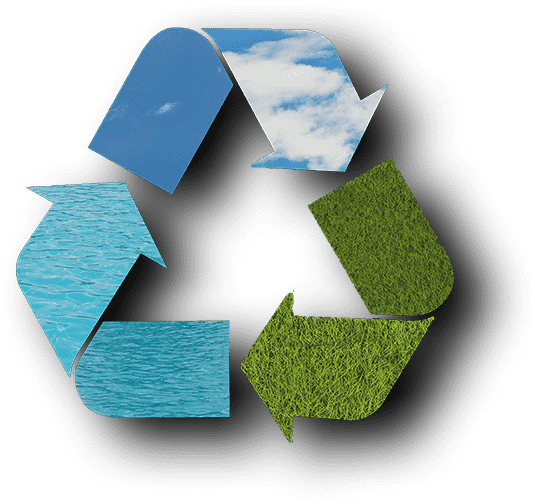
Recycling and reducing waste have long been at the core of Wilderness’ ethos and practices. Reduction of plastic at our camps has been our main focus, with recycling as a last resort. All in the name of protecting the precious, pristine wildernesses where we operate – empowering local communities in the process.
Among our ongoing initiatives aimed at minimising waste, mostly plastic and food waste, are these:
- We use local suppliers committed to reducing plastic;
- We don’t use single-use plastic;
- We use straws made from metal/glass, not plastic;
- Over the last decade we’ve reduced bottled water consumption by 79 percent;
- We use containers made from cornstarch and reusable covers and containers;
- We’ve eliminated the use of cling wrap from all our camps;
- To limit food waste, we’ve created smart, sustainable menus using largely local, seasonal products.
- Throughout our camps, we recycle not only plastic, but other waste by-products such as grey water, and food scraps and cuttings.
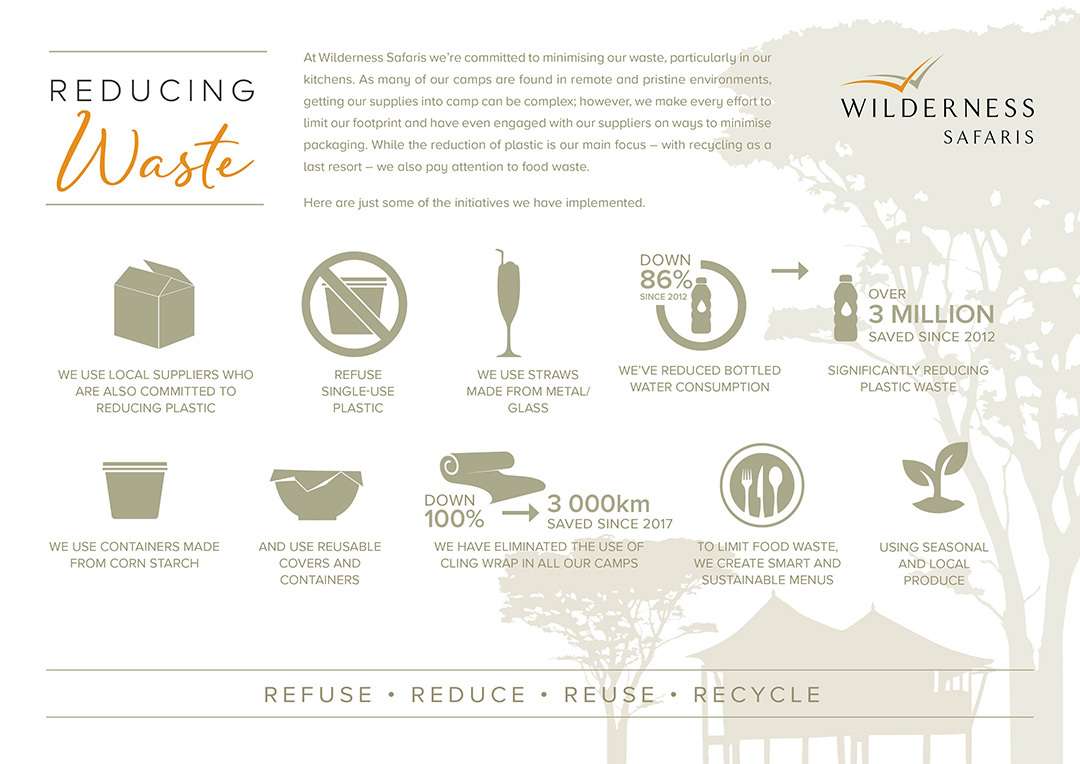
Through our non-profit partner Children in the Wilderness (CITW), various initiatives in communities where we operate in Zimbabwe, for instance, have set the bar high for diverse and successful recycling projects. Projects simultaneously supportive of people – through training and job creation – and the environment. Some of these were started during the COVID-19 pandemic, so all the more welcome. ‘We are delighted to have received this additional support from Wilderness Safaris at this otherwise difficult time’, says Sue Goatley, CITW Regional Programme Co-ordinator for the Zambezi Region. ‘…When we contribute to the alleviation of poverty and unemployment in the local communities, we also help mitigate the human-wildlife conflict issues within these areas and encourage the communities to conserve the wildlife and the wilderness’.
Among our ongoing recycling projects with CITW Zimbabwe:
Papermaking/Recycling
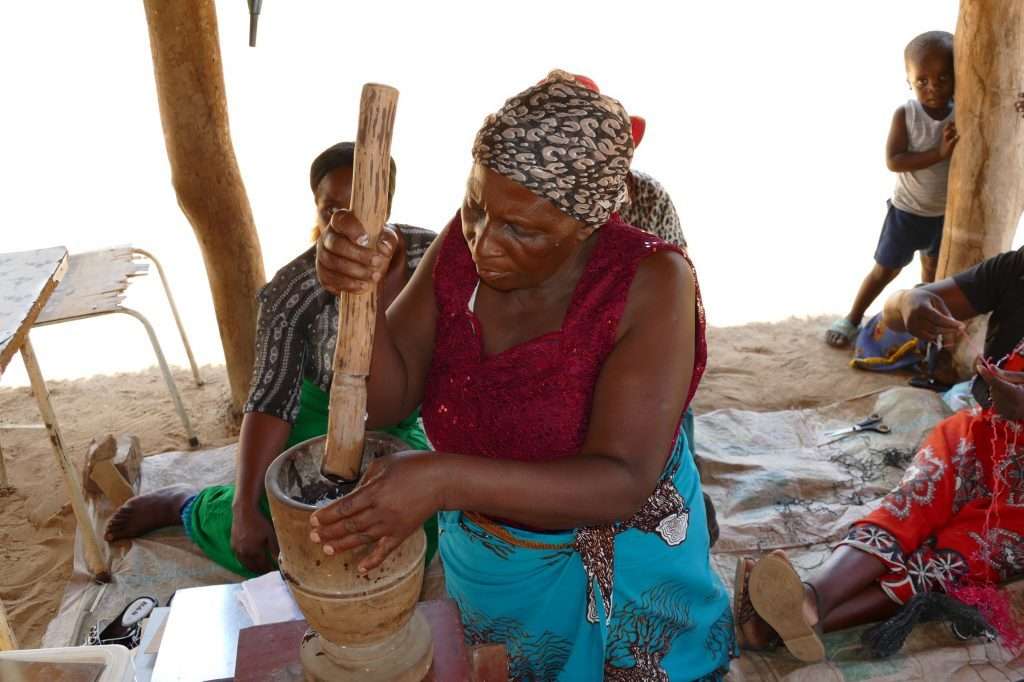
Eight women from Jabulani were the founding members of a papermaking group started in March 2020 and facilitated by CITW. The women use paper products that would otherwise end up in landfill to make bookmarks, notecards, origami boxes, and A4 paper, sold to our camps and local communities. This papermaking group is training other women in similar papermaking. Like all community projects facilitated by CITW in this region, 40 percent of the total income goes to the group and 60 percent covers running costs and potential expansion. The women are thus able to contribute to their household incomes and pay their children’s school fees – often out of reach in these communities.
Glass Recycling/Crushing
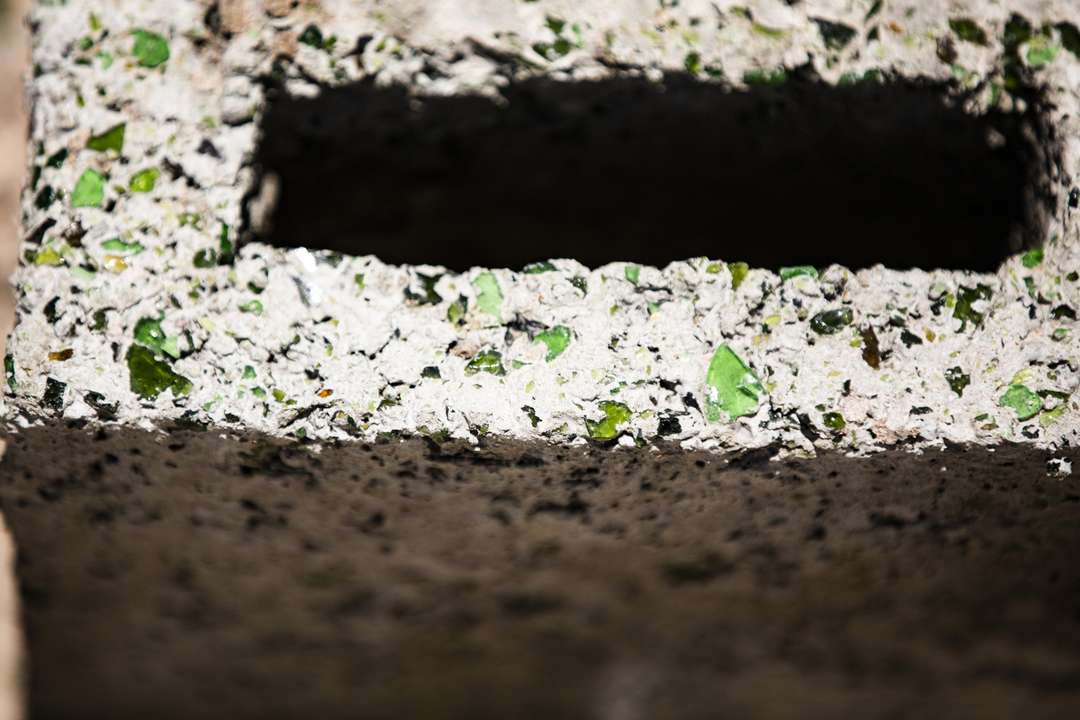
Operating since 2018 and run by 15 men from Ngamo and Ziga villages, this project has significantly reduced waste in the region. Wine, beer, and other glass bottles are collected from our camps in Hwange National Park and surrounding areas; using a glass crusher, coloured bottles are ground down to make concrete breeze blocks, with clear bottles used for bead making. These blocks – with attractive cut-out designs letting air in – are 20 percent stronger than those using river sand, so sell well and affordably to local community members.
Snare-Wire Jewellery and Art
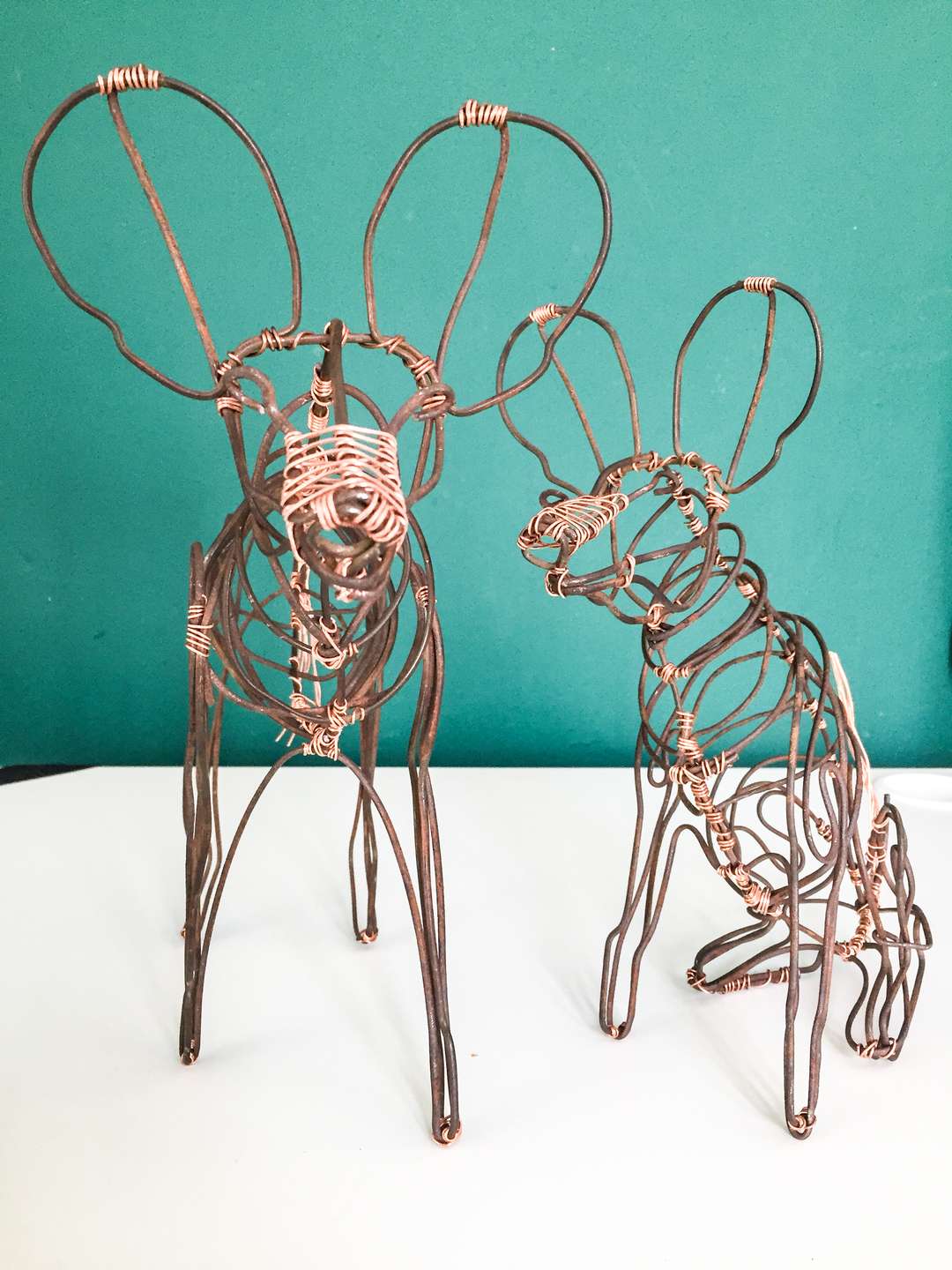
Snares are a scourge in many wilderness areas, killing or maiming wildlife. Zimbabwean women have formed a group to make jewellery out of collected snare wire, to sell at our camps’ curio shops and more widely in tourist centres.
Aluminium Recycling
Women’s groups are recycling aluminium cans into buttons, zippers, and other products.
Sadly, the COVID-19 pandemic slowed or even shut down recycling initiatives worldwide – a blow to reducing greenhouse gas emissions. But as the planet heats up, we need increased commitment to recycling everywhere: in our homes, workplaces, communities, nations.
REDUCE! REUSE! RECYCLE!



